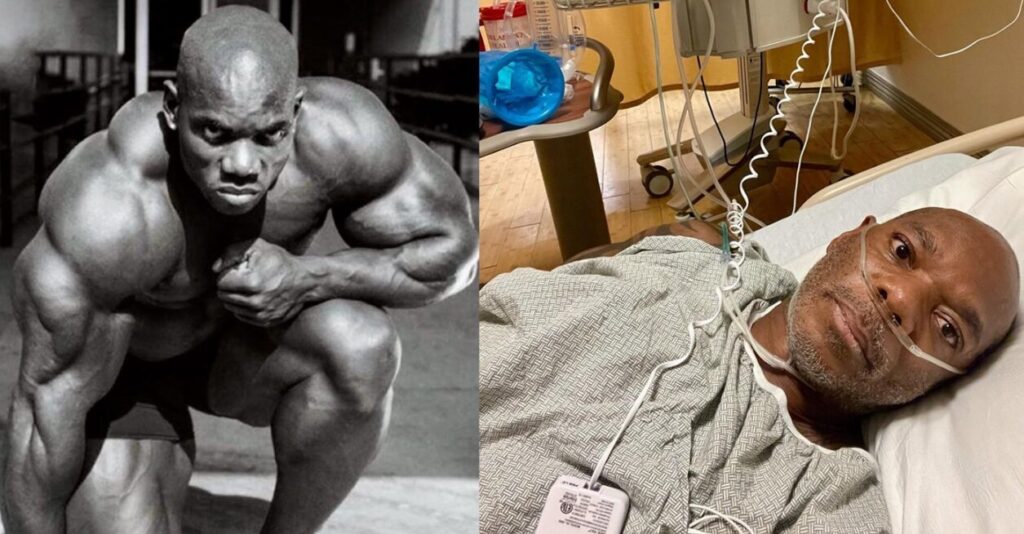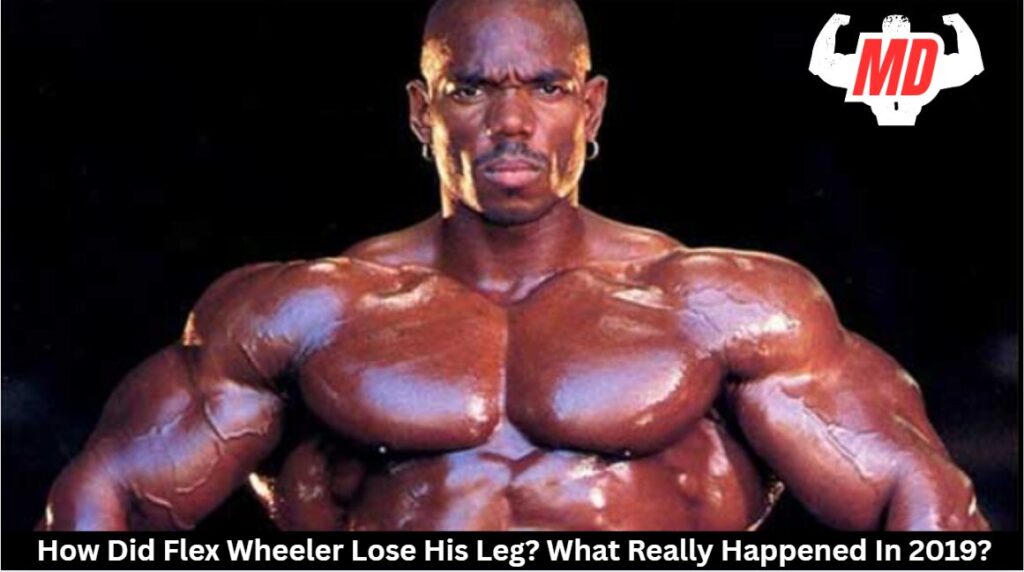You’ve probably seen the powerful images of bodybuilding legend Flex Wheeler after his 2019 leg amputation, but do you really know what led up to that moment? While many fans got inspired by his brave return to the spotlight wearing a prosthetic, the painful and complicated medical journey behind it is something most people have never fully heard.
Flex was not just battling to stay in shape. He was fighting for his life. Behind the scenes was a storm of health issues that brought him to the brink. His story is no longer just about physique. It is about survival, resilience, and discovering a whole new kind of strength.
Who Is Flex Wheeler? A Bodybuilding Icon’s Rise to Fame
Few legends have stepped on the bodybuilding stage like Kenneth “Flex” Wheeler. Known as “The Sultan of Symmetry,” Flex defined the 1990s with slender proportions and clean lines.
His iconic poses shaped the sport. Four Arnold Classic victories and several high placements at Mr. Olympia made him a favorite not just for his physique but for the artistic way he presented it.
Beyond applause and titles, Flex faced challenges beyond competition. Severe health issues changed his life. Despite these setbacks, he still resolved to heal and start over. That drive created a legacy far beyond the stage. He remains among the most moving and inspirational stories in bodybuilding history.

A History of Health Challenges Leading to 2019
Although celebrated for his perfect physique, Flex Wheeler’s body had been silently battling serious health complications for decades before the 2019 amputation. In 2003, he underwent a kidney transplant after being diagnosed with focal segmental glomerulosclerosis, a disease that severely impacted his health and ended his competitive career.
Throughout his recovery, Wheeler faced ongoing vascular complications that compromised blood flow to his extremities. These issues, combined with the accumulated trauma from years of intense training and past injury, created the perfect storm of medical challenges. His compromised immune system further complicated his ability to heal properly.
These cascading health problems gradually worsened until they reached a critical point in 2019.

The Medical Emergency That Led to Amputation
The health of Flex Wheeler rapidly deteriorated in October 2019, which led to an emergency hospitalization. What began as acute right leg pain progressed to severe peripheral artery disease complicated by compartment syndrome.
In the hospital, doctors found blocked blood vessels starving leg tissues of oxygen. Multiple procedures to reestablish circulation proved ineffective. The medical team made a tough choice. He needed them to continue with unsuccessful interventions or perform partial leg amputations to save his life.
Having spoken with specialists, Wheeler decided to undergo surgery. On October 23, 2019, surgeons removed Flex Wheeler’s right leg below the knee, bringing months of intense pain to an end and marking the beginning of a long journey toward recovery.

The Aftermath and Public Reaction
The amputation of Flex Wheeler shocked the bodybuilding community with support from fans, competitors, and industry figures worldwide. This former Mr Olympia contender showed resilience when he posted updates from his hospital bed in 2019.
In one of his toughest periods in life, Wheeler remained remarkably strong mentally during his initial leg recovery. Social media showed just how much his journey inspired bodybuilders. His honesty about the emotional struggles post-amputation resonated with people going through health battles. The redirection Wheeler experienced became a living example of just how resilient the human spirit can be under extreme hardship.
Motivation and Advocacy After Amputation
Despite facing life-altering surgery, Flex Wheeler embraced his new reality with remarkable determination and purpose. He approached rehabilitation with the same discipline that defined his bodybuilding career. He adapted his training methods to work within his new physical limitations.
Still involved in fitness today, Wheeler continues to coach and participate in major industry events. He turned his struggles into advocacy, speaking openly about managing chronic illness and the mental challenges of adapting to disability.
Wheeler’s journey shows how strength transcends form. By way of social media and speaking engagements, he continues to inspire others who face similar struggles to know that resilience is more important than physical perfection in defining a legacy.
Legacy Beyond the Stage
When you talk about a champion’s legacy, Flex Wheeler leaves behind far more than a shelf full of bodybuilding trophies. He never won Mr. Olympia, but his near-perfect physique earned him the nickname “Sultan of Symmetry” and a lasting place among the sport’s all-time greats.
But Flex’s real legacy goes beyond muscles and medals. The way he handled losing his leg, facing that kind of adversity head-on, has inspired countless people. He showed the world that real strength isn’t just physical. It’s about resilience, heart, and the will to keep going.
Today, his story speaks to anyone going through something tough. Flex proves that it’s not the setback that defines you. It’s what you do afterward. That’s what makes a true champion.
Frequently Asked Questions
Could Wheeler Have Received Different Medical Care to Prevent Amputation?
Wheeler’s severe vascular issues and compartment syndrome had progressed too far by the time of emergency intervention, making amputation medically necessary to save his life.
Does Wheeler Regret His Bodybuilding Lifestyle Choices Now?
Wheeler hasn’t expressed regret about his bodybuilding career. Instead, he’s embraced his journey, viewing his health challenges as part of his path rather than consequences he wishes he could change.
Will Prosthetic Technology Allow Wheeler to Train Competitively Again?
While modern prosthetic technology offers impressive functionality, you won’t see Wheeler competing professionally again. He can train adaptively with his prosthesis, but his focus has shifted toward motivational speaking and advocacy instead.
How Has Wheeler’s Family Coped With His Health Challenges?
Wheeler’s family has been his bedrock through all health struggles. They’ve provided emotional support, assisted with his daily care, and helped him maintain a positive mindset throughout recovery.
What Specific Medications or Treatments Does Wheeler Follow Post-Amputation?
Wheeler maintains a regimen of anti-rejection medications for his kidney transplant, physical therapy protocols, and specialized prosthetic care. He’s also incorporated modified strength training and nutritional supplements into his recovery plan.



